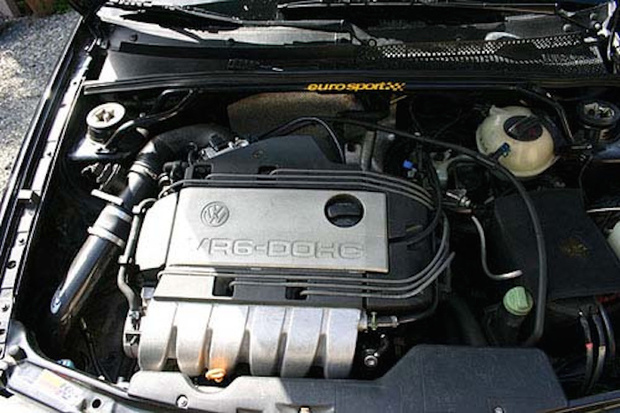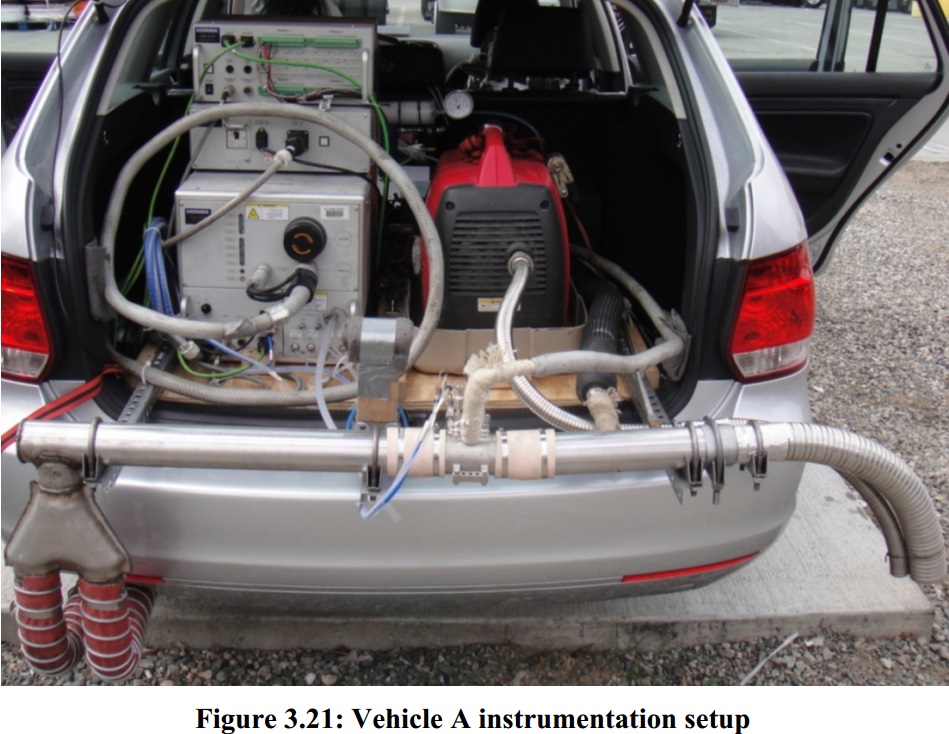A detailed history of the failure of the Volkswagen concern with a forgery of tests for environmental friendliness of the exhaust

What happened
The exhaust of cars with two-liter diesel engines from Volkswagen turned out to be ten times less environmentally friendly than was announced by the test results. The car computer intentionally changed the engine so that the tests produce good exhaust results.
What for
Volkswagen management forged it because they really wanted to continue to maintain the company's reputation as a manufacturer of very fuel-efficient diesel engines.
Modern cars in the exhaust system have a component called NOx trap (which we call a “catalyst”). Its function is to reduce the content of nitric oxide and other harmful substances in the exhaust of a car with an internal combustion engine.
But, unfortunately, the NOx trap operation scheme is such that its efficiency increases with increasing unburned fuel content in the exhaust. And increasing this level is the exact opposite of the task of increasing engine efficiency.
Therefore, the management of the company, unable to ensure the fulfillment of two diametrically opposite tasks, went for forgery. In a modern car, there is a huge number of sensors that collect a wide variety of information about various vehicle components. Therefore, it is not difficult, having collected data from the sensors, to determine with high accuracy the state and operation mode of the car (for example: the hood is open; the traction control system is disabled, etc.).
Experts found that among the readable parameters were the position of the steering wheel, the speed of the car, the duration of the engine and atmospheric pressure.
The on-board computer, which is responsible for the operation of the main systems, determined by certain parameters that the car was in the environmental testing mode, and at that moment changed the engine operation scheme so that it burned less fuel - but its unburned part ensured the most efficient NOx trap operation.
In this way, having successfully deceived the tests, it was possible to produce at least 11 million Volkswagen and Audi cars. Two-liter diesel engines have been produced since 2009 and were installed on the brands of Jetta, Jetta SportWagen, Golf, the new Golf SportWagen, Passat and Beetle, as well as the Audi A3.
As discovered
Arvind Thiruvengadam, an assistant professor at the University of West Virginia, last year was testing exhaust emissions from Europe-made diesel vehicles for the US market. They tested cars not on stands, but on real roads. Several thousand kilometers were traveled by Volkswagen Jetta, Passat and BMW X5.

Real-world exhaust test setup
According to expectations, Passat was supposed to show a minimum level of nitric oxide in the exhaust, but in the end it showed a level 20 times higher than the maximum chosen by the researchers.
It turned out that in a very economical and not very environmentally friendly mode of operation of the engine, the level of nitric oxide in the exhaust was 40 times higher than the permissible European standards.
Who's guilty
The head of Volkswagen has already resigned, but he claims that he knew nothing about such a forgery. Experts say that in a company of this level, “ all moves are recorded, ” and theoretically, indications of the development and implementation of such a system can be traced.
Who else
But the scandal still continues to erupt - today it became known that the head of the development department of Audi and the chief engine engineer at Porsche also resigned . These were the two main people working on brands also owned by Volkswagen. Meanwhile, the German newspaper Auto Bild published a study according to which, in a BMW X3 with a 2.0 liter diesel engine, the nitrogen oxide content in the exhaust actually exceeds European standards by 11 times. So far, BMW has denied the allegations and in its defense claims that the newspaper did not provide any details about how the tests mentioned in the article were conducted.
What to do
In the US, the number of diesel cars is not more than 1% of all sold, but their number is slowly growing. Now, this growth can be replaced by a fall. And car owners are likely to have to face the fact that the next software update, the head of the engine, their car will become less economical and more environmentally friendly.
Meanwhile, Volkswagen management has already set aside $ 7.3 billion in a separate desk drawer to cover the costs of the scandal. True, perhaps this will not be all her spending. For every car sold with such a defect, starting in 2008, the company will have to pay $ 37 thousand in the United States. The total fine will be about $ 18 billion.
Fortunately for the company, VW's share in the USA was small- For many years, the company has been trying to understand how to expand its expansion into the American market, but all attempts were unsuccessful. It is possible that such a scandal could shake the position of VW in the European market and lead to massive job cuts, which will negatively affect the German economy.
